|
Paul Schrader's First Reformed is a masterful examination of the existential nature of belief, and the cold, destructive nature of depression, a film which subverts expectations at every turn, drawing parallels between the dogmatic nature of theological and ideologically-driven lifestyles, ultimately being a potent expose on the deeply-flawed mindset of those who seek change through violence. While the film certainly could be placed into the "crises of faith" subgenre of cinema, First Reformed is more a film about the existential nature that a crisis of conscience can have on the psyche, illustrating the necessity for hope & love in life, despite the host of problems which plague mankind. Through this character's journey, which I will not detail here, First Reformed transforms into a potent study of despair, recognizing how emotion itself while paramount can be illogical, as those who fixate on the negative find themselves becoming a slave to this pain, unable to still see the good that exists in the world. The dichotomy between the main-protagonist, a Reverend who is wracked by grief & guilt over the death of his son, and the radical environmentalist who he attempts to council, speaks volumes about First Reformed intentions, as the film draws powerful parallels between these two characters, capturing how they are one-and-the-same on a deeply spiritual level, each sculpted by pain and eventually driven by anger. The film encapsulates how while autocratic perceptions of life often give an individual comfort, it can quickly divulge into dogma, recognizing how this is often where violence and innocent lives are destroyed. The aesthetic instilled by Schrader throughout this story is stoic, minimalist, and astute, with the film drawing heavily from symmetrical compositions early, rich in pathos and evoking the theme of the story about the need for balance in life, where hope and despair, pain and triumph run tangent to each other, two sides to the same coin that empower one and other through one's inner, spiritual struggle. The core of First Reformed is simply a story about the paramount nature of love and hope, a film which pulls off this type of thematic assertion in a way that only Paul Schrader could, being a dark, brooding study of a man on the edge.
0 Comments
A gentle, sentimental piece of filmmaking sure to frustrate the more cynical filmgoer, Naomi Kawase's Radiance is a quaint, personal drama about the human condition, deconstructing how an individual's perceptions and experiences often define who they are. A story centered around a descriptive video transcriber, who specializes in creating audio descriptions for films to serve the visually impaired, Radiance immerses the viewer into a world unbeknownst to so many, effectively showcasing the paramount nature which vision has, not only as it relates to practicality, but also to spirituality and ego- a force that shapes and molds an individuals inner-being through the perceptions of the world it provides. A former photographer who now serves as one of her panel members provides much of the conflict in this melodramtic story, an individual who has lost not only his professional livelihood but also his main mode of connection to the world. This once proud photographer is slowly and methodically challenged with starting his life anew in many ways due to his rapidly deteriorating eyesight, as he desperately grasps to find a new way to connect to the world around him. While the acquantanceship that unfolds between these two characters teases unncessary romantic implications that feel out-of-place and forced in an otherwise earnest film, Radiance remains pointed and resonant in its ability to showcase the profound difference between objective reality and subjective perception, as the film beautifully recognizes that our lives and experiences themselves, how we see the world, are shaped and modeled by individualist perception. While the video transcribor aims to provide this once proud pohtographer hope, intent on helping him regain his agency to see the world in new ways, he himself pushes her to recognize the paramount nature of being a transriber to those whom have lost their ability to connect to the world visually, asserting that one must be desriptive but never intrusive, allowing those without their eyesight to maintain and sculpt their own individualist perceptions through personal experience. What unfolds throughout the course of Radiance's narrative is a deeply respectful film which provides a unique and emotionally effective portrait of what mankind attempts to quantify as "the human experience", with Naomi Kawase providing a delicately crafted story that serves as a powerful reminder about the vast ways in which we can interpret the world through our perceptions
Offering a documentary-like snapshot into a particular space and time, Tomas Gutierrez Alea's Memories of Underdevelopment transports the viewer to 1961 Cuba, detailing the exploits of an apolitical writer and member of the bourgeouise, Sergio, a man who is unwiling to leave Cuba after the revolution. Seeing his wife and family friends leave for the United States, Sergio refuses to leave, seemingly convinced that he retain his way of life. Socio-political assertions related to Marxist class theory, the intrinsic relationship between capitalism & imperialism, and other various complex issues related to soverignety, freedom, and equality are very much at the core of Memories of Underdevelopment, yet the film remains relatively unique in its deconstruction of such issues due to its reliance on its main characterization, Sergio, a man whose detached from the quickly changing world around him. Memories of Underdevelopment details the socio-political climate of the time through the lens of a man in Sergio who isn't particularly likeable to the average viewer; he is a playboy, a well-educated member of the bourgeouise, whose perspective of the world doesn't particularly align with the revolutionary forces. He isn't an agitatator, just an outsider driven by egoism, and Sergio's perspectives of the quickly changing world provid unique perspective one would not expect from this film, making Memories of Underdevelopment feel far more balanced, astute, and profound than many film's I've seen detailing similar themes. Tomas Gutierrez Alea as a filmmaker shows an unwillingness to simply adhere to the didactic socio-political assertions that all to often craft simplistic binary implications about good and evil, right and wrong, instead delivering a dense, though-provoking piece of cinema about politics but also identity, and the subjective nature of reality when viewed through the lens of the individual. Perhaps Memories of Underdevelopment is best described as a character study with socio-political undertones, as this characterization remains the driving force of the entire film, exhibiting a reflection on the time and space of post-revolution Cuba, with Sergio's own internal existential struggle between intrinsic comforts of the familiar and the existential threat of change manifests itself on a scale that speaks to universal ideas much larger than just this one individual's journey. Sergio is educated and driven heavily by self-improvement, and the impending sense of creeping alienation he feels around him is emotionally resonant, as we witness this headstrong individual slowly crumble under the weight of a rapidly changing environemnt in which his ideals and beliefs are not shared. While he is a character who is hard to like at first, coming off as privledged, materialistic, and autocratic in his beliefs, the film slowly transforms him into a sympathetic character in a lot of ways, questioning the systematic and oppressive nature of authority, something which is often glossed over by many revolutionaries who are dishonest about the toxic nature heirarchy, power, and authority has overall all those, no matter how "good intentioned" they may appear. With this in mind, Memories of Underdevelopment is an astute study of identity, recognizing how we are all hostages to our underlying ideas and perceptions of the world. It is honest in its recognization that as human beings we intrinsically have autocratic tendencies in our overall philosophical beliefs, at least internally, yet the film subtly recognizes how the position of Authority and Power is the problem, as it provides the intrument necessary to inflict one's internal philsophical beliefs on others via force and oppression. For Sergio his general arrogance is his undoing, as he slowly recognizes his mistake in staying in Cuba, believing he can sculp his environment in his own image, a tedious exercise that leaves him in a state of alienation in his homeland. He tries to start over, replace his wife with a new woman in his desired image, and in doing so he becomes a victim of his own autocratic tendencies, a path that leaves him in despair. Sergio's whole plight, his arrogance in the belief that he can craft his environment in his image draws major parallels with United States imperialism, both being driven by an autocratic and absolute belief that they can shape the world in their image, both unwilling to accept that not all individuals or cultures will except their brand of ideas. A film that is ripe for a host of variant political ideologically-driven takes, Tomás Gutiérrez Alea's Memories of Underdevelopment is perhaps first and foremost viewed best through a simplier philosophical lens, one in which systematic authority, often derived through arrogance, power, and absolutes, always ends in oppression.
A bombastic film that is relatively coherent given the intrinsic bloat that is to be expected from a superhero mash-up on this scale, Infinity War wisely makes Thanos its central character, empowering its antagonist with the narrative drive of its grandiose, multi-dimensional story. This decision makes this dense Marvel mashup feel more like a space opera than a generic, bombastic superhero film, elevating the stakes and general clarity of the story while delivering an exciting superhero film in which none of the various character brands that have been sculpted and crafted over the past 10 years in the MCU feeling beyond the cold, potential finality of death.
Perhaps the closest thing Claire Denis will every make to a romantic comedy, Let The Sunshine In is a whimsical deconstruction of the intangible nature of Love. Set in Paris, the film follows the recently divorced Isabelle, a middle-aged painter who struggles to find someone to share her life with. Perhaps best described as a "Comedy of Errors", Let the Sunshine's narrative unfolds almost like a series of vignettes, as we see Isabelle stumble between all-too-flawed men, unwilling to settle for an individual who can't provide both the companionship and passion she seeks. Featuring a simple romantic comedy formalism, Claire Denis manages to never romanticize the societal construction of love, rather it treats it as this mysterious, poignant force, one which has the ability to drive stable individuals into a psychological frenzy. with Isabelle herself struggling to find her version of love. 'The anxiety, angst, fragility, and longing experienced by Isabelle throughout Denis' film are bitterly honest and quietly profound, with Binoche's brilliant performance balancing all the varied components of the mysterious nature of love, as the film showcases the subjective nature of love, and how in many ways, it's predicated by the various preferences and desires of each individual seeking to find something more through this connection. Circumstances, the conflict which often can exist between carnal desires and love, as well as various outside influences all provide conflict in Isabelle's pursuit of love and companionship, and through this relatively straight-forward construction, Claire Denis reveals universal truths about this paramount, intangible pursuit known as love.
Difficult to quantify, Tamir El Said's In The Last Days of the City takes place in Cairo, 2009, telling the story of Khalid, a 30-something documentary filmmaker, who is struggling to capture the soul of his home against the backdrop of such instability, uncertainty, and state-based oppression. Predating the start of the Arab Spring, Tamer El Said's In the Last Days of the City is a powerful reflection on a region of the world teetering on the edge of great change, a film that weaponizes its film-within-a-film construction to deliver a powerfully efficient, ingenious elegy about a region in crisis. Blending cinema-verite sensibilities with a loosely-constructed coming-of-age narrative, In the Last Days of the City is an immersive experience, one that juxtaposes the idyllic beauty of Cairo with the existential threats the region finds itself confronted with, where violence and death are daily companions in everyday life. The narrative itself is intentionally loosely constructed, with our main protagonist's documentary-making characterization allowing an aesthetic that is much more documentary-like, being extremely observational in how it presents the city of Cairo. Melancholic and insightful, The Last Days of the City is a deconstruction of the importance of the places we call home, reflecting on how where we are from often defines us as individuals, not necessarily in a tribalistic way per se, but in one driven by the the emotional attachment in which familial spaces can provide. In the Last Days of the City isn't fierce or angry, it's melancholic, exposing the viewer to a host of young 30-something individuals whom are struggling to define themselves in an unstable world. Their sense of identity is being confronted, potentially damaged, or even subverted by the volatile nature of a region going through major upheaval, each individual being uniquely effected by the instability of their home, whether that be Egypt, Iraq, or Lebanon. In the Last Days of Cairo never shy's away from showing the oppression and violence carried out by the state, yet it never conflates the government with the people, showcasing how different cultures, both old and new, secular and non-secular, coexist in Cairo on the streets, yet through the government, and the various power structures which fight for control and authority over the masses, instability, oppression and violence are commonplace. Taking place in 2009 Cairo, In the Last Days of the City already feels like remnant of the past, a melancholic elegy to a city pre-dating the Arab Spring that isn't particularly political in nature, instead being far more concerned about the region and its people, a film that views such a complexities of the unstable region with sweeping humanism, in which its only true focus maintains fixated on non-violence and the tragic nature of displacement.
|
AuthorLove of all things cinema brought me here. Archives
June 2023
|
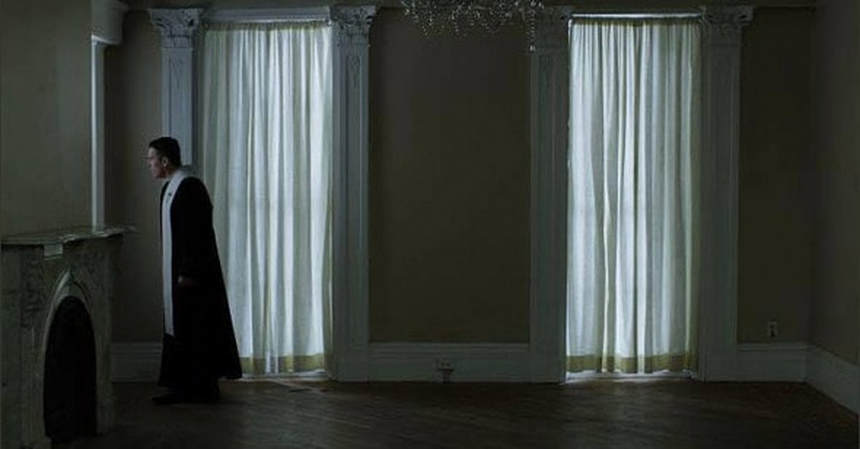
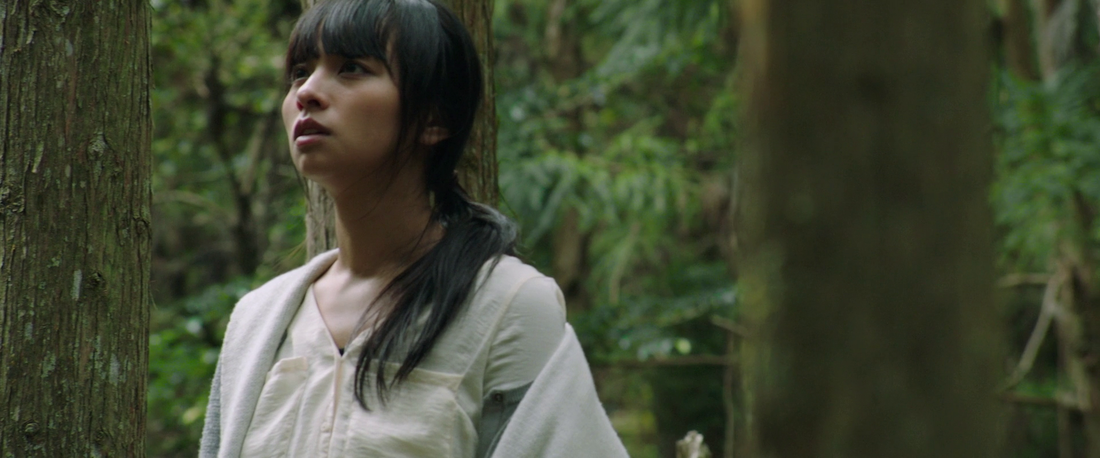
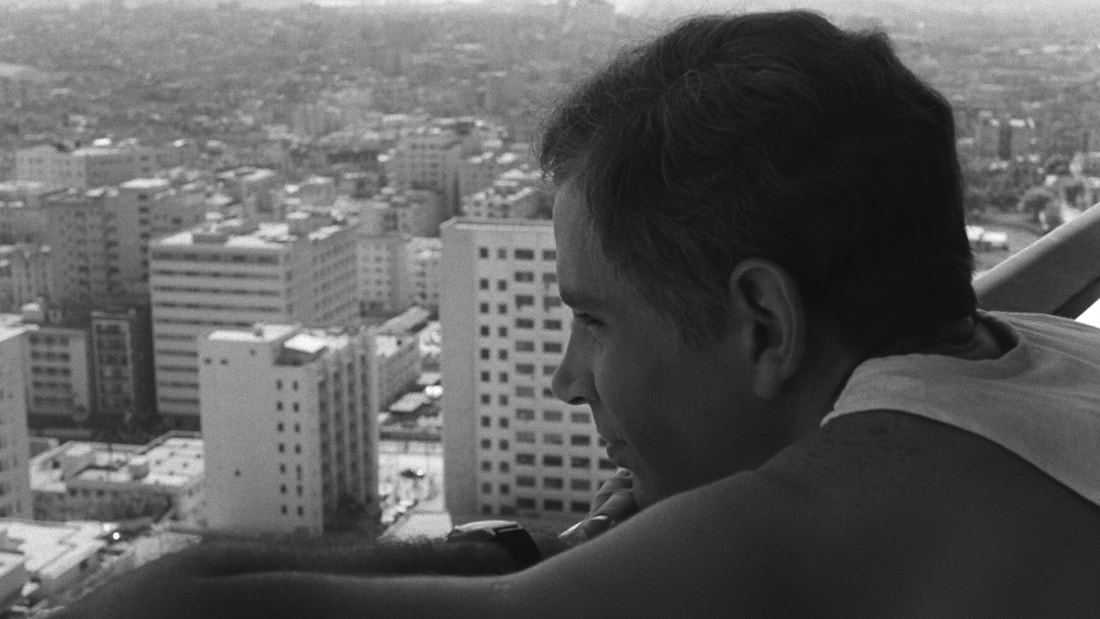

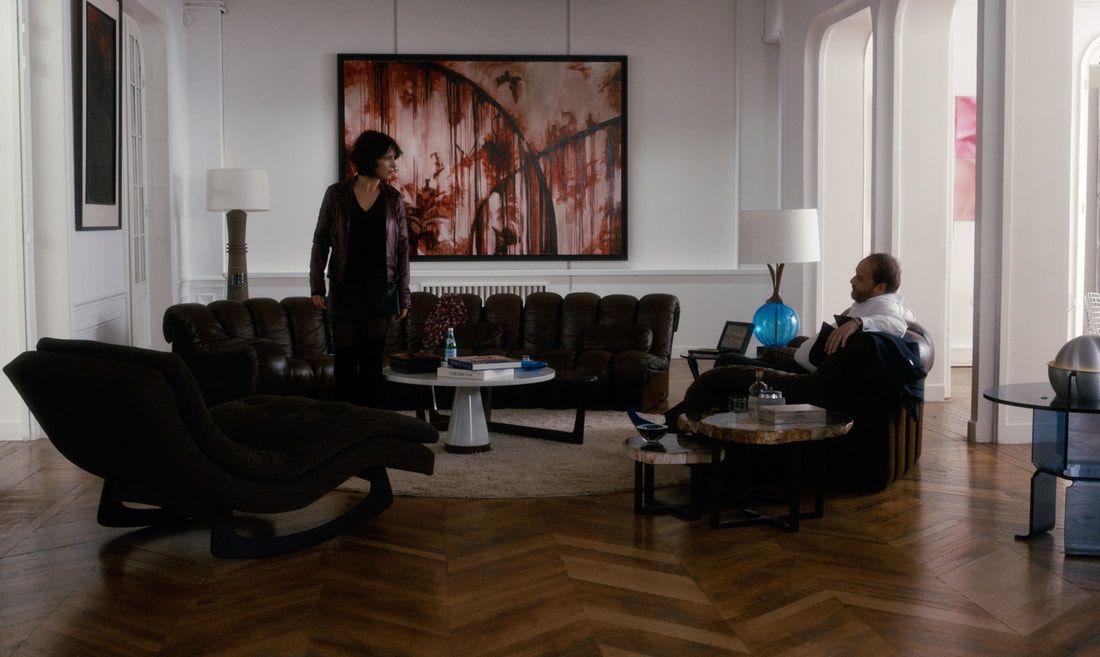
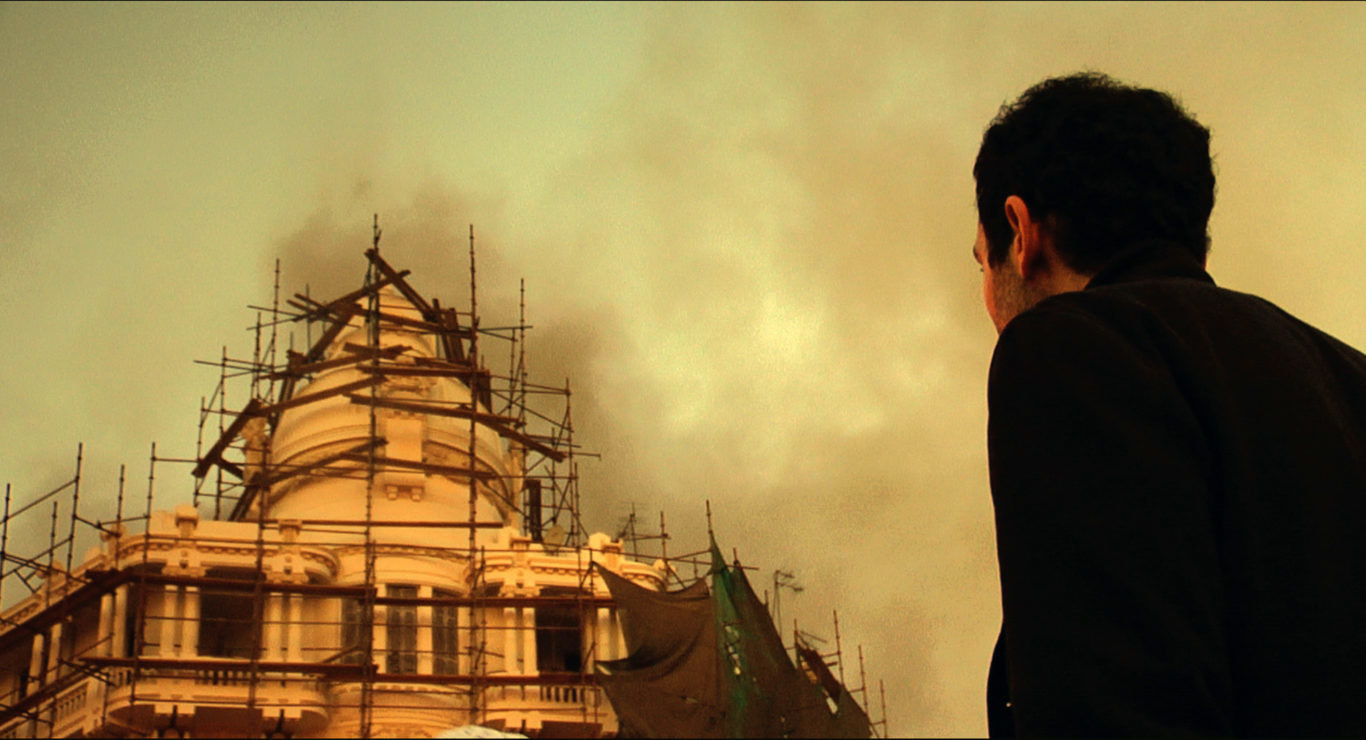
 RSS Feed
RSS Feed
